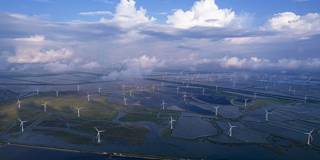Just when the harrowing effects of climate change are becoming all too apparent, public disillusionment toward democracy is spreading, particularly among young people. But climate justice ultimately demands that the liberal-democratic, capitalist model be salvaged.
BRUSSELS – Climate change poses vexing questions concerning not just what rich, high-emitting countries may owe to poor, under-developed ones, but also what those in positions of power today owe to future generations. How should we navigate perceived tradeoffs between pollution and the right to pursue economic development, or between current and future gains? And more to the point, what system of governance is best suited to the challenge?

BRUSSELS – Climate change poses vexing questions concerning not just what rich, high-emitting countries may owe to poor, under-developed ones, but also what those in positions of power today owe to future generations. How should we navigate perceived tradeoffs between pollution and the right to pursue economic development, or between current and future gains? And more to the point, what system of governance is best suited to the challenge?